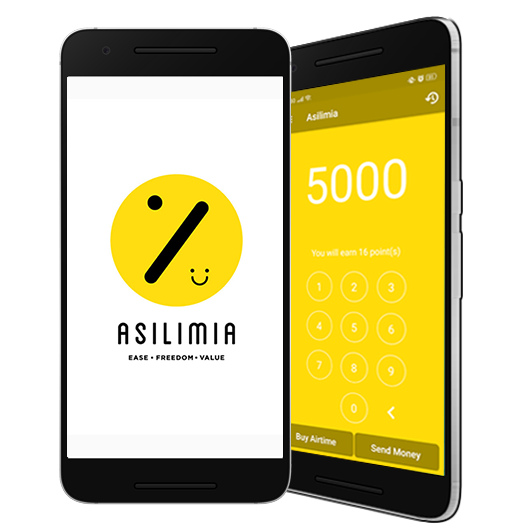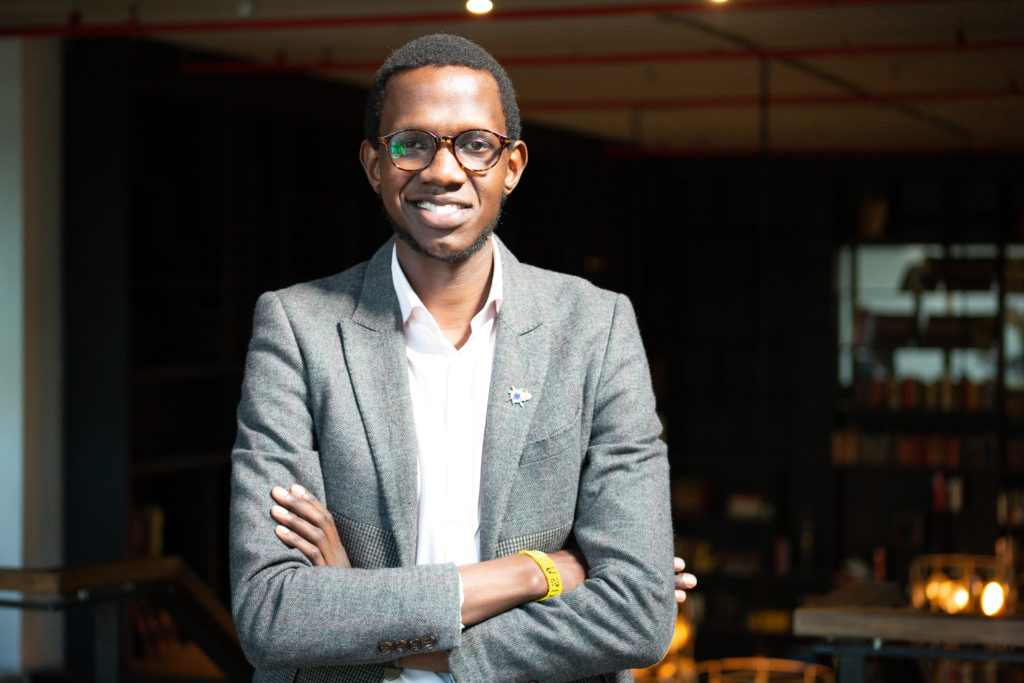By Lilian Museka
Nairobi, Kenya: Kenya’s informal business owners are always condemned to stagnation due to a lack of formal payments and limited access to digital financial services as they are hardly registered.
Most of them become prisoners of lenders who end up taking away all their savings thereby making it impossible for them to grow or make profits.
In view of this, Mr. Tekwane Mwendwa, having been an informal trader and suffering the same fate, he developed an app, “Asilimia” to help the traders formalize payments and revenue collection.

Recalling how the idea came about while taking a ride home in 2017, Tekwane, the now CEO of Asilimia, found himself unable to afford a bus ride due to high mobile money withdrawal fees, even though he had sufficient funds in his mobile wallet.
He decided to create a simple payment solution, targeting small businesses, which create simple digital solutions. Asilimia was born from the idea.
Asilimia is an app for sending money through MPESA quickly and without any transaction fees. “You simply deposit money to your Mpesa account, download Asilimia and send money for free to any other MPESA account. Our users can use our USSD or android application to initiate transactions from their Mpesa wallet, ” says Tekwane.
He says the payment solution targets micro and small businesses that create up to 80 percent of Kenya’s opportunities and contribute to 40 percent of the country’s GDP.
With a current customer base of 5,000 mostly based at the largest market in Kenya, Gikomba which accommodates a large number of small scale traders, Tekwane says they charge a commission to financial institutions that are interested in serving the highly bankable traders that are using the application.
“Despite the impact we have achieved, we realize that operating an entirely free platform is not sustainable in the long-term. We are thus working hard on sharpening our financial and business modeling of different revenue streams to identify key hypotheses, sustainable growth pace, and associated investment needs.”
“We also offer cash rewards for every M-Pesa transaction. Every time a user sends money, pays bills, buys goods or withdraws money through M-Pesa, they are rewarded with 1% of the M-Pesa transaction value which they can redeem for cash via M-Pesa. We chose to work with Mpesa first because the platform is the most widely-used one in Kenya and the most successful microfinance initiatives in Africa as a whole,” adds Takwena.
Some of Asilimia competitors include Bitpesa, Chipper Cash, Kopo Kopo, Pesa Pl, and Popote Pay. However, Tekwane says the differentiator is that Asilimia is market-focused, building a platform based on the character of small and micro business
“For instance, we offer real-time money settlement, eliminate long registration procedures, provide only three-step transaction process, and don’t require the recipient to have an Asilimia account.
Tekwane says most informal traders, despite being the driver of the economy; they had challenges accessing loan services as banks were unwilling to trade with them for fear of defaults. This he says has led to many financial institutions being unable to access them effectively. Governments have also found it a challenge to tax them which has made it impossible to meet revenue collection.

Tekwane hopes to ultimately help the medium-sized business to be able to access financial services. He was recently won the Africa Cup at the South Africa Innovation Summit that saw him get away with 350,000 US dollars investment offer from the Unicorn Group.
“We will use the money to help lift 50,000 new users out of poverty by enabling them to collectively save approximately 1.5 million dollars per month from Mpesa fees. We will also use part of it to equip up to 10,000 small businesses with insurance and other financial services, to make partnerships with service providers.” He adds
With the International Monetary Fund estimates that the informal sector contributes approximately 38% of Sub-Saharan Africa’s Gross Domestic Profit (GDP) and the Internal Labour Organization (ILO) estimating that the sector accounts for up to 72 per cent of the total employment in the region, the sector is one of the leading in absorbing vulnerable groups including women, children and among the less educated ones.
“Most of them are condemned as they lack formal registration thereby making it difficult to access loans which hamper their growth.” He adds.
Tekwane says that by building the profiles of its users, Asilimia is able to identify groups that desperately need financial services and at the same time offer low risk, high return prospects for financial service providers. This helps MSMES to work with financial service providers and build wealth over time.
Tekwane says they are currently running a cross-analysis on MSMEs and mobile payment development in other countries, a survey that will bring out competitors that they will use to develop further strategies. He says they are soon planning to expand to the larger East African Market.
Tekwane is an entrepreneur with ten years’ experience in capital mobilization, team acquisition, business development, and revenue generation. He is passionate about equity, underemployment and disruptive business models that lead to businesses that are inclusive and respectful of context.













